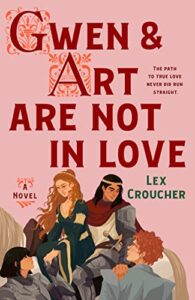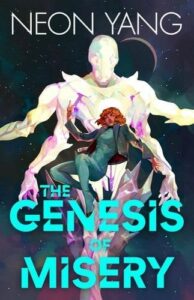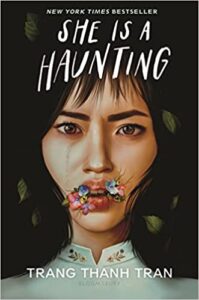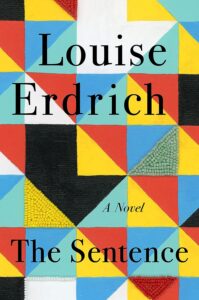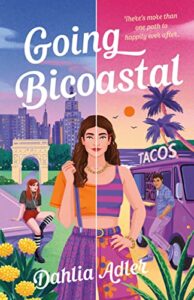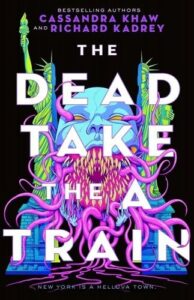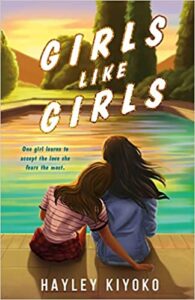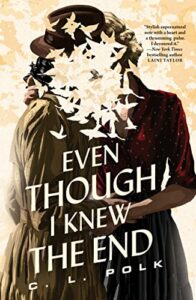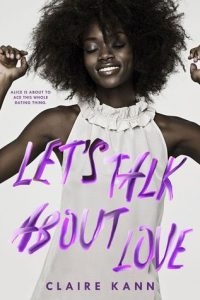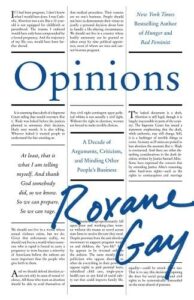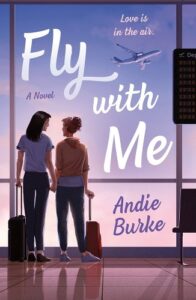Buy this from Bookshop.org to support local bookstores and the Lesbrary!
Gwendoline and Arthur have been betrothed to one another since birth. Too bad they absolutely hate each other. When forced to spend a summer in Camelot together, Gwen and Arthur discover tantalizing secrets about one another: Gwen witnesses Arthur kissing a boy, while Arthur learns that Gwen has a crush on the kingdom’s lone lady knight, Lady Bridget Leclair. Stuck at a stalemate, they make a reluctant pact to cover for one another. While Gwen and Bridget finally connect, Arthur finds himself enamored by Gwen’s brother. Can they navigate their messy feelings to find their own places in history?
Oh my goddess, the queer chaos in this is everything. Lex Croucher has spun Arthurian legends of old into a queer medieval YA rom-com that could easily alter history as we know it. Gwen is a bi baby, newly navigating her feelings for a badass lady knight, while Arthur is a gay, sassy messy shooting heart-eyes at Gwen’s brother (the one-day king). The dialogue is EVERYTHING: sassy, quick-witted, and all too entertaining. There’s somewhat sexy sword-fighting (come on, sword-fighting is always sexy, but when your queer crush is schooling you, it’s all the better), fake dating (does it count as fake dating when you’ve been betrothed since childhood?), and heart-warming found family vibes. The queer panic and nervous humor were all too relatable, even though the story is set in medieval times. That’s a true feat; you can connect with the queer chaos, even if you’re shooting heart-eyes in the 21st century.
That being said, let’s talk about Gwen and her lady knight. I mean, get ready to absolutely SWOON alongside Gwen. Lady Bridget Lechlair is all fierce confidence—a necessity, when everyone has an unpopular opinion of you simply because you’re a woman, regardless of your badass abilities—but she’s also an enigma with a gooey interior. I loved seeing Gwen find her confidence through Bridget, discovering her voice and standing up for them both when necessary. Though Gwen is a royal, she’s questioned her inner power and authority, as everyone around her has made it clear her only worth is in her marriage to Arthur as a political move. Spending time with Bridget gives Gwen the chance to realize she’s worth so much more. Though the story’s quick wit and banter stand out, I think this character development is the story’s real strength. Sometimes, you need someone who believes in your potential before you can see it yourself.
The only real hang-up for me was the pacing. The ending felt especially rushed, which was a disappointment after the queer chaos dragged a bit. I wonder if the writer paused for a moment, then returned to finish the latter half of the story. I also found the relationship between Arthur and Gabriel (Gwen’s brother) a little underwhelming when it had so much potential at the start. Regardless, I appreciated all the queer hijinks and humor.
Recommended for fans of Heartstopper, Rainbow Rowell’s Simon Snow trilogy, Red, White, & Royal Blue, and the TV show Merlin. Get ready for a swoon-worthy, medieval mess of pining and romance!
✨ The Vibes ✨
⚔️ All the Queer Ships (w/ Serious Queer Panic)
⚔️ Fake Dating
⚔️ YA Debut
⚔️ Found Family
⚔️ Medieval/Historical Fiction/Rom-Com
⚔️ Enemies to Allies
What classic story would you love to read a queer retelling of?

